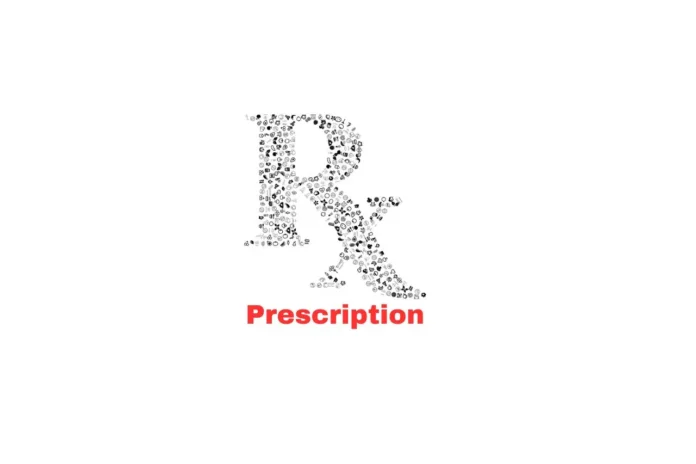Last Updated on October 10, 2024 by The Health Master
New Delhi: A couple of years ago, the Lucknow bench of the Allahabad high court imposed a penalty of ₹5,000 each on three doctors in three separate cases for illegible handwriting.
Of course, the unreadable scrawls in question did not pertain to prescriptions given to patients, but to medico-legal reports pertaining to criminal cases and the judges were irked by the scribble and ordered that in future the reports be computer-generated.
In the case of prescriptions too, computer generated advisories are really the answer to indecipherable handwriting, but till such time that becomes a reality, consumers are dependent on pharmacists to give them what the doctor ordered, and this puts a tremendous responsibility on chemists to ensure that they correctly decipher, not only the name of the medicine, but also its strength and any other details that the prescription may contain.
Adverse reaction: A consumer recently complained about having an adverse reaction to a drug. On checking with the doctor, he realized that instead of the single active ingredient drug prescribed, the chemist had given a combination drug with two active ingredients.
Brand name: Since the brand name was the same for both, with an alphabet added as a suffix to indicate the additional drug, the consumer remained unaware of it.
Substitution: Such substitutions by the pharmacist, whether deliberate or by oversight, can turn out to be costly for the consumer. Conversely, ignoring those suffixes would also not augur well for the patient.
Strength: Beside different strengths or potency, some of the drugs also vary in terms of how they are released, indicated by suffixes such as SR (sustained release), PR (prolonged release), and so on.
Route: Since consumers are not aware of these, they are dependent on the chemist to give them the right medication. Similarly, there may be tablets meant for sublingual administration (to be taken by placing it under your tongue) rather than the usual gastrointestinal route by swallowing with water. 0
Prescription: A reader recently told me that the chemist changed her prescription of vitamin B12 and gave her sublingual B12 tablets, without informing her. She did not even know about sublingual pills. Since this was such a crucial information, the chemist ought to have informed her. Failure to do so was negligence.
Even more serious are cases of dispensation of an entirely different medication than the one advised by the doctor, leading to very serious consequences for the patient —many such cases have come up before the consumer courts.
In Ashok Kumar Vs M/S Kumar Brothers (Chemists) Private Ltd, for example, dating back to 2017, the consumer was prescribed , among others, Metolar XR 50 mg. The chemist gave Gluformin XL 500 mg, a drug meant for diabetes.
Consumption of the drug led to the consumer being admitted to a hospital in a serious condition. On learning that his ill health was the result of the wrong medication sold by the chemist, Kumar sought compensation for the suffering caused to him.
The District Consumer Disputes Redressal Commission, UT Chandigarh, directed the chemist to pay ₹50,000 as compensation and ₹10,000 as costs. ( CC No CC/281/2018, decided on October 23, 2018 )
While in some cases, sheer negligence on the part of the chemist leads to such medication errors, in some others, similar sounding names could be the cause.
Hence the doctor’s diagnosis noted along with the prescription plays an extremely important role in the patient buying the right medication.
In Mohammad Ali Purkait Vs Manager, Frank Ross Pharmacy, the Consumer Disputes Redressal Commission, Baruipur, Kolkata, directed the pharmacy to pay only ₹5,000 as compensation for dispensing Concor-AM 2.5 instead of the Concova-M prescribed by the doctor.
One of the reasons for the poor compensation was that the doctor had not mentioned the diagnosis, which could have helped the pharmacist decipher the totally illegible prescription(Complaint No 07 of 2017, decided on March 30, 2021).
So, while chemists have a duty to sell only what is advised by the doctor, medical practitioners also have to abide by the Indian Medical Council (Professional Conduct, Etiquette, and Ethics) Regulations that mandate that “every physician should prescribe drugs with generic names legibly and preferably in capital letters.”.
That would not only reduce medication errors, but also help consumers choose a generic drug at a much lower cost or even a cheaper brand.
Govt mandates QR code on labels of all APIs manufactured and imported
Govt to allow sale of these Medicines with out Prescription
ICMR approves RT-PCR Omicron detection kit
USFDA gives final approval to Zydus for Vigabatrin tablets
DCGI needs more safety data for Covaxin nod for under 12
USFDA approves add-on therapy to lower Cholesterol
Capsule introduced that can inhibit viral replication
Drug alert: 33 out of 1385 samples declared as NSQ in December 2021
Pharmaceutical Budget 2022: Expectations
Latest Notifications regarding Pharmaceuticals








